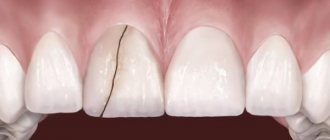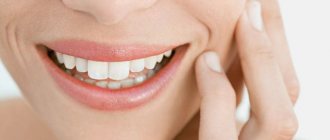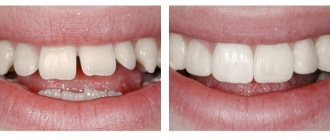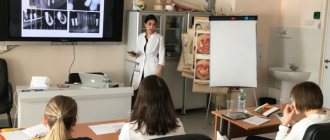1611
Every person who cares about their dental health wants to find a good dentist.
But distinguishing a truly good specialist from a money-hungry charlatan can be very difficult.
Let's look at the main factors that you should pay attention to when choosing a competent dentist.
History of the dentist profession
Surprisingly, the history of the dental profession is incredibly long.
The most ancient branch of dentistry goes back deep into the history of Ancient Egypt, dating back to 3500-4000 BC. The mummy of an ancient dignitary, which had signs of surgical intervention on the teeth, dates back to this period. There were many more Egyptian skulls with crowns on the teeth, and they belonged to people from different classes, which indicates a high degree of development of dentistry in Ancient Egypt. More than once, tombs contained well-preserved tools that closely resembled their modern counterparts. In addition, it was here that the first toothpaste of the original composition appeared (ashes of burnt bull entrails, ground eggshells, myrrh and crushed pumice).
In the 1st century BC, the first dentists appeared among the ancient Etruscans, who specialized specifically in dental treatment. They learned to make strong and durable dentures from animal teeth.
In one of the ancient Pakistani Neolithic burials, a drill and a nearby skull with traces of its impact were found, which may indicate that this artifact is the oldest dental instrument in the world.
The ancient Indians also used some dental techniques. In ancient times, opium and arsenic were widely used to relieve severe toothaches. The ancient Romans always added urine to their toothpaste because it was great at removing plaque.
In the 14th century, the Chinese learned to make toothbrushes from pig bristles or horse hair. But they got a bone handle much later - in 1870 in England.
The history of the emergence of the dentist profession in Russia officially began with Peter the Great, who introduced this position, after which this branch of medicine began to develop rapidly.
If we give a modern description of the dentist profession, then it is a high-tech science that is constantly improving methods for the prevention and treatment of oral diseases. The loss of a tooth has ceased to be a problem for her, since it can be replaced by extensions, prosthetics and other procedures with which a person can give himself a “Hollywood” smile.
Main dental specialties
Having received basic ideas and knowledge about the profession, dental students choose the direction in which they will develop further. The choice here is quite wide - from the prevention and treatment of dental diseases to surgery, maxillofacial cosmetology and prosthetics.
Let's look at the main activities in the field of dentistry:
- Therapy. The responsibilities of a dental therapist include an initial examination of the patient, diagnosis and further treatment of standard, uncomplicated oral diseases.
- Orthopedics. An orthopedic specialist eliminates bite defects and solves a range of problems related to prosthetics and microprosthetics of teeth.
- Dental surgery. This specialization is associated with the elimination of simple maxillofacial defects through surgery. The surgeon also deals with the removal and implantation of teeth, preparation for prosthetics, performs plastic surgery and reconstruction of the jaw, performs operations on the surfaces of the tissues surrounding the tooth, and solves other medical problems.
- Maxillofacial Surgery. A specialist in this field performs surgical operations of increased complexity associated with congenital or acquired defects of the maxillofacial area.
- Children's dentistry. A doctor who works with children specializes in baby teeth and knows everything about their treatment and proper development. Knows how to get along with small patients, uses gentle and painless treatment methods.
- Orthodontics. An orthodontist studies the conditions and causes of maxillodental anomalies, carries out their diagnosis, prevention and treatment. Most often he works with children and adolescents at the stage of development of their chewing and speech functions.
- Periodontology. A doctor in this specialty studies, treats and prevents diseases of the periodontal tissues. These include gums, bone tissue of the root and ligamentous apparatus of the tooth.
A dentist, especially one performing operations or complex medical procedures, works in tandem with an assistant. His responsibilities include:
- Preparing the medical office for a doctor's appointment.
- Carrying out physical and therapeutic procedures.
- Disinfection of equipment.
- Sterilization of dental instruments and dressings.
- Assisting a doctor while treating a patient.
Types of dentist profession (specialties)
Not all people understand many of the names of medical professions, so it is necessary to clarify which of these specialists does what.
Dentist-therapist
Responsible for diagnosis, examinations and general treatment. He can fill and restore teeth in the simplest way, prepare the oral cavity for prosthetics, remove nerves, and also treat a number of diseases (flux, caries, pulpitis, periodontitis, gingivitis and inflammation of the nerves).
Dentist-orthodontist
It is related to the correction of incorrect position of teeth in the oral cavity (when teeth sit either too sparsely or run over one another). The main tools in the profession of “orthodontist” are plates, braces and traymers.
Orthopedic dentist
The profession of “orthopedic dentist” involves prosthetics and dental restoration. The first option is used when there is nothing left to save, but with the second, restoration of the diseased tooth is still possible. Orthopedists are assisted by dental technicians.
Dental surgeon
The profession of “dental surgeon” indicates that the doctor operates on the jaws, facial joints and bones, and removes teeth in case of defects, tumors, injuries and other diseases. They also prepare the oral cavity for surgery performed by an orthopedist and remove the implants.
Dental hygienist
It is needed to examine the oral cavity and teeth, remove plaque, and polish enamel. He also advises on the prevention of dental diseases and hygiene procedures.
Periodontist
Their area of action is the gums and soft tissues that support and surround the teeth. They will also help with tooth mobility, bleeding gums, the appearance of tartar and plaque on the teeth, and bad breath.
Pediatric dentist
The profession “dentist for children” specializes in the same functions of a dental therapist, but only when applied to children’s bodies, for example, when removing teeth.
Dentist-prosthetist
After the patient has attended a consultation with a dentist, who has recognized the impossibility of treating the tooth with the tools available to him, the prosthetist begins to deal with it. The latter can offer the patient different options for dentures, after which he makes impressions of the teeth, which are matrices for the manufacture of dentures. Then the prosthetist tries on the manufactured prosthesis, adjusts it and securely fastens it in the client’s mouth.
Media tools for conducting classes
For preschoolers and elementary schools there is a cartoon “The Good Doctor Dentist” (film production), which relieves the fear of visiting the dentist, and also provides nutritional recommendations and tips for brushing teeth.
Another educational cartoon, “Profession of a Children's Dentist,” can be watched with schoolchildren in both primary and secondary classes, and even used in discussions with senior classes (questions for discussion will be below).
Pros and cons of being a dentist
Like any other, the dentist profession has its pros and cons.
Advantages of being a dentist:
- high salary;
- demand in the market for good specialists;
- the possibility of opening your own office or clinic.
Disadvantages of being a dentist:
- almost inaccessible free education due to great competition;
- Like any medical profession, dentistry is a poor choice for sensitive people.
Where can you become a dentist?
Today, dentistry is a prestigious profession, highly paid and gives the opportunity to realize oneself in private business by opening one’s own dental office. Therefore, many young people are interested in where they can get a dental profession? The answer is simple - in one of the medical universities, you just need to graduate from the dental specialty:
- Surgical dentistry.
- Therapeutic dentistry.
- General dentistry.
- Orthopedic dentistry.
- Orthodontics.
- Pediatric dentistry.
The profession of dentist is also available to those who graduated from a medical university in another specialty, but for this they need to undergo postgraduate training in one of the dental specialties.
This profession can only be mastered after a long period of training, so if young people are interested in the dentist profession, they can find out what exams they need to pass at a medical university that graduates such specialists; today these are the Russian language, biology and chemistry. It is absolutely certain that this education will be very expensive in modern conditions. True, it is also true that the subsequent practice of a well-established specialist will quickly recoup all the costs of training, because the work of a dentist is very well paid. However, the latter greatly depends on the place of work.
A dentist can count on career growth not only as a professional (upgrading his qualifications while working in one position), but also in administrative terms (from a doctor to a chief physician).
Video about the profession of “dentist”:
Description and essence of the profession
In our view, dentistry is the treatment, restoration and prosthetics of teeth. However, her specialization is much broader and is associated with solving all problems of the maxillofacial part of the body - congenital and acquired defects, traumatic injuries, neoplasms and even psychosomatic diseases.
The cosmetological role of dentistry remains relevant. After all, a beautiful smile and fresh breath today are not only a matter of physical health, but also the social status of their owner. Therefore, regularly visiting the dentist becomes a mandatory ritual for the patient. This means that if you choose such a specialty, you will not be left without work.
To become a dentist, for whom there is always a demand, you should receive a good basic education, undergo a decent practice, and be constantly interested in how the profession is developing and what is new in it. Self-development is necessary to withstand competition, which is quite high today.
It should be recognized that the generation of dentists of the 21st century has a much easier job. A modern dentist is a doctor whom patients are not afraid of. In the case of this profession, it is a very important factor that significantly facilitates the treatment procedure. There is no longer a “sadist” victim in the chair in front of the doctor. The patient trusts the doctor - the treatment is faster and more effective.
Dentistry is one of the most advanced and high-tech areas of medicine.
The dentist has powerful anesthetic agents at his disposal, which allow him to carry out any action with virtually no pain. Thanks to modern X-ray machines, dental diagnostics have become more accurate. Revolutionary changes have also occurred in dental prosthetics. Implants have appeared - full-fledged replacements for missing teeth, orthopedic structures that correct their shape and color, durable and comfortable dentures, as well as many other new products.
What does it take to be a dentist? Personal qualities and skills
- Dentistry requires excellent coordination and developed fine motor skills, excellent vision and long-term memory. After all, the slightest inaccuracy can cause the patient severe pain or even lose a tooth.
- A dentist needs to know the anatomy and physiology of the human body, and not just the structure of the teeth and oral cavity.
- He must have excellent knowledge of medicines, instruments related to the profession, understand the latest materials and much more that is encountered in the practice of a dentist.
- The dentist must be able to use complex x-ray equipment and interpret its images. This is a very responsible and careful job.
- Among the features of the dentist's profession is that he must also be a good psychologist, able to communicate with nervous patients who tend to react sharply to any careless word. Delicacy, consideration and balance are required when dealing with patients who are often in a stressful situation.
Unbalanced and overly impressionable people are better off not going to the dentist.
Where can I find a job as a dentist?
Dentist vacancies are available in regular clinics and in private or public dental institutions. The specific nature of the work never leaves dentists idle.
Job responsibilities of a dentist
- Reception of patients and their treatment.
- Sanitation of the oral cavity and preventive examinations.
- Maintaining medical records.
Certain dental specialties have additional responsibilities. For example, an orthopedic dentist is responsible for working with optical instruments and micro-invasive prosthetic methods.
Requirements for the profession of a dentist
People who have:
- higher medical education;
- certificate for each specialization and medical book;
- work experience in the specialty;
- computer knowledge.
After what grade should I study to become a dentist?
There are several ways to become a dentist. You can first go to college for one of the related specialties in the field of dentistry, and then continue your studies at the university.
Without a higher education, you can work as a dental assistant. People are hired after graduating from college, and sometimes even after completing specialized courses. But to advance up the career ladder, a higher medical education is required.
Training to become a dentist:
- After 11th grade, you need to study to become a dentist for 5 years. Another 1 to 3 years, depending on the chosen specialization, are required to complete an internship or residency. Then you can begin medical work.
- After 9th grade, it takes 7-8 years to study to become a dentist. The first 2-3 years are required to become a dental technician or dental assistant in college. The next 5 years are studying at a medical school. It takes another 1 to 3 years to complete an internship or residency.
| OKSO code | Program | Establishment | Duration of training |
| 3.31.2.5 | Orthopedic dentistry | College | 3 years 10 months (after 9th grade) |
| 2 years 10 months (after 11th grade) | |||
| 3.31.05.03 | Dentistry | University | 5 years |
The profession of a dentist involves attending specialized events, studying new technologies in the industry, and using the latest developments. Many dentists are actively involved in scientific and teaching activities.








